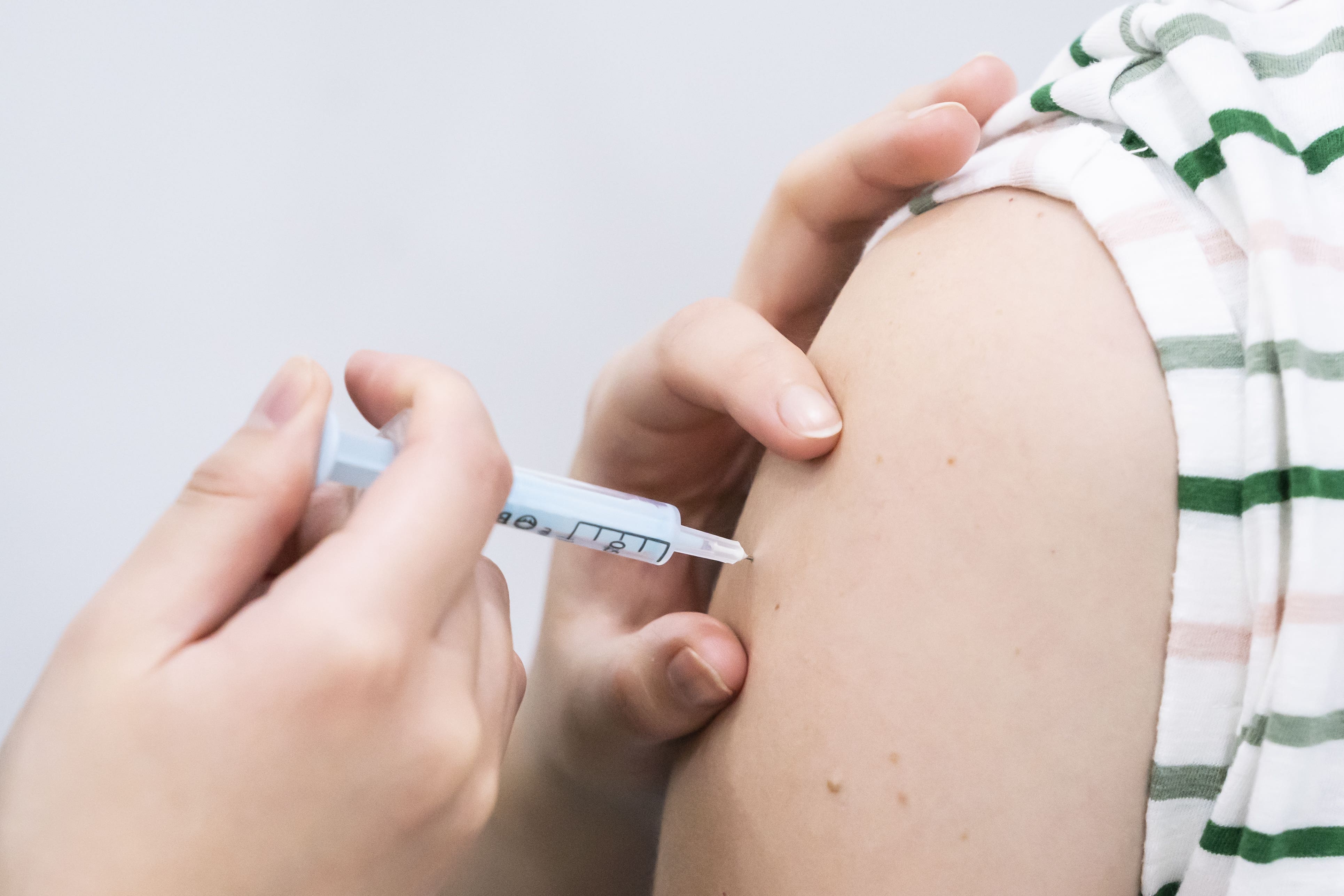Covid-19 vaccines do not affect women’s periods, study finds
A study was led by the University of Edinburgh.

Your support helps us to tell the story
From reproductive rights to climate change to Big Tech, The Independent is on the ground when the story is developing. Whether it's investigating the financials of Elon Musk's pro-Trump PAC or producing our latest documentary, 'The A Word', which shines a light on the American women fighting for reproductive rights, we know how important it is to parse out the facts from the messaging.
At such a critical moment in US history, we need reporters on the ground. Your donation allows us to keep sending journalists to speak to both sides of the story.
The Independent is trusted by Americans across the entire political spectrum. And unlike many other quality news outlets, we choose not to lock Americans out of our reporting and analysis with paywalls. We believe quality journalism should be available to everyone, paid for by those who can afford it.
Your support makes all the difference.Covid-19 vaccines do not cause disruption to women’s periods, although becoming infected with the virus can lead to changes, research suggests.
A study led by the University of Edinburgh found that while around one in five vaccinated women has reported changes to their periods after a Covid jab, the vaccine appears to have no effect when vaccinated and unvaccinated people are compared.
Women who have been infected with the Covid-19 virus are at increased risk of changes such as missed or heavier periods, or bleeding between periods, the study found.
Researchers from universities in Edinburgh, Montpellier, Oxford, Bristol and Exeter examined the results of a survey of almost 5,000 pre-menopausal vaccinated women conducted in the UK in March 2021.
Most women (82%) reported no menstrual changes, while 6.2% reported more disruption to periods, 1.6% reported less disruption, and 10.2% reported other changes which included changes to cycle length and regularity, or amount of menstrual bleeding.
Of the 18% who reported changes, the risk was higher among those who smoked, had previously had Covid-19, or were not using oestradiol-containing contraceptives such as the combined contraceptive pill, the study found.
The researchers then looked at a wider group of 12,579 women, both vaccinated and unvaccinated.
The group comprised vaccinated women without a history of Covid-19 disease (3,635 women), vaccinated women who had had Covid (1,354), unvaccinated women previously diagnosed with Covid (1,802) and women neither vaccinated nor previously diagnosed with Covid (5,788).
Our results are reassuring that Covid-19 vaccination does not cause concerning menstrual changes, and helpful for identifying people who might be at higher risk
The results showed that, compared with women who were not vaccinated and had never had Covid-19, vaccination alone did not lead to increased abnormal changes to periods.
Those with a history of Covid-19 were at increased risk of reporting heavier bleeding, missed periods and bleeding between periods.
Dr Jackie Maybin, one of the study authors from the University of Edinburgh, said: “These results rely on people recalling their previous menstrual experiences, and may include bias due to those who chose to complete the survey.
“Nevertheless, our results are reassuring that Covid-19 vaccination does not cause concerning menstrual changes, and helpful for identifying people who might be at higher risk of experiencing menstrual disturbance.”
The team hopes the results, published in the journal iScience, will help healthcare professionals when discussing the risk of period issues linked to Covid-19 jabs.
In the study, 53% of vaccinated women received the Oxford/AstraZeneca jab and 47% the Pfizer/BioNTech vaccine.
A US study published last year linked Covid-19 vaccines with an average increase in menstrual cycle length of less than a day, though there were no changes to the number of days of bleeding.